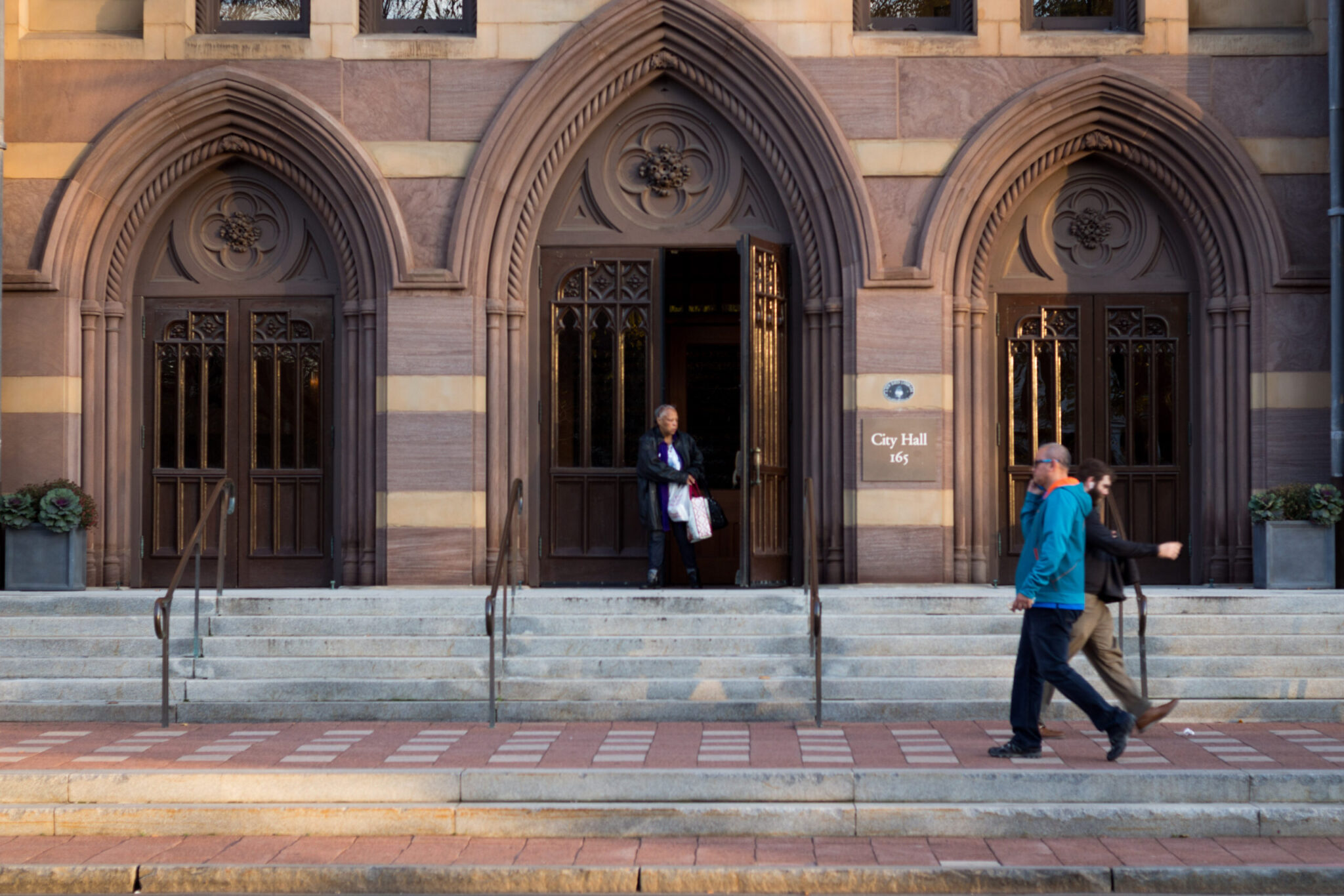Proposed budget rethinks city housing programs
If approved, the new proposed budget will restructure the Livable City Initiative, creating an Office of Housing and Community Development and expanding staff for both programs.

Daniel Zhao, Senior Photographer
As part of the 2024-25 fiscal year budget proposed last Friday, New Haven Mayor Justin Elicker plans to restructure the Livable Cities Initiative, adding new positions and more funding for the program.
If approved, the proposal will split the Livable City Initiative. The newly created Office of Housing and Community Development will take responsibility for the creation of new housing in the city, while LCI will solely focus on housing inspections. The mayor also hopes to add eight new housing-related positions.
City activists have critiqued LCI due to delayed inspection and unresolved complaints, often leaving tenants waiting months without receiving support from the city.
“It’s clear every day that housing is one of the biggest challenges that we’re facing as a city,” Elicker told the News. “While we’ve made a lot of progress, we have a lot more work to do, in particular, in two areas. One is increasing the number of affordable units in the city, and two is … improving our ability to inspect existing housing stock to ensure that it is safe.”
In total, these two housing programs will get more than $1.4 million in additional funding compared to the last fiscal year. Elicker’s proposed budget also allocates an additional $300,000 to support unhoused people.
The proposed Office of Housing and Community Development
Included in the city budget is Elicker’s proposal to create a new Office of Housing and Community Development, which will partner with local organizations to build new housing and administer grants for future housing projects. If approved, the office will be a part of the city’s Economic Development Administration Division.
Currently, the Livable City Initiative is responsible for this work.
Staff at the LCI who worked on housing development will be transferred to the new office, and an additional position — deputy director of Economic Development Administration — will be created to oversee it, according to Elicker.
“It’s more appropriate for this work to be done within the Economic Development Administration,” Elicker said. “Economic development is the place [to which] developers first go when they’re wanting to start projects.”
Michael Piscitelli, the head of the city’s Economic Development Administration Department, explained that the new office will distribute funding for ongoing housing projects. According to Piscitelli, there are currently 3,500 new housing units in the city’s development pipeline — about 40 percent of which are affordable.
Some of these projects are led by the city, such as a new series of townhouses on Grand Avenue, while other units are being built by external housing developers. The new office will support the projects by monitoring construction and providing technical assistance on grant applications.
In addition to supporting housing construction, the office will be in charge of administering grants for construction projects approved by the Board of Alders. Some of these grants include funding from the federal Office of Housing and Urban Development, which annually administers between $3 and $4 million in funds to the city of New Haven. Additionally, the office will draw on funds from the 2021 American Rescue Plan.
Piscitelli noted the need for affordable housing across the state of Connecticut. He said that the city has built 1,900 new affordable housing units in recent years but that the overall gap in affordable housing in Connecticut is upwards of 90,000 units. The new office will help improve housing policy, looking to increase the number of affordable units in the city, Piscitelli said.
Changes and improvements to LCI
The budget proposal will also add seven new staff positions with the Livable City Initiative, the agency that, under the proposed plan, will focus only on enforcing housing code and public space requirements throughout the city.
“I think [it’s] very important for LCI to focus on the core mission, what it was originally created for, which is ensuring our existing housing stock is of high standards,” Elicker said.
Five of the proposed staff are housing inspectors, who, if approved by alders, will join the current team of 13 inspectors.
According to Elicker, the attorney employed at LCI will join the Office of Housing and Community Development. The mayor thus proposed adding an attorney who will continue to work with LCI on housing compliance and inspections. LCI will also receive a new administrative assistant.
According to Piscitelli, these new positions will expand LCI’s capacity to engage in on-site inspections of rental units and section eight units on behalf of the city’s housing authority.
LCI’s work entails a multi-step process of inspecting units, issuing orders based on code enforcement inspection and ensuring that landlords comply with these orders. Piscitelli said that staff expansion would increase efficiency within the agency, allowing LCI to make better use of government resources and increase the timeliness of their work.
“We’ll be expecting a high level of process improvements such that we’re good on the timelines and we address the issues and make sure that our outcomes are good for the tenant who may live in the unit,” Piscitelli said.
Karen DuBois-Walton, the executive director of New Haven’s Housing Authority, noted the significance of improving LCI’s efficiency.
“The city must increase its capacity to meet the requirements of the landlord licensing program,” DuBois-Walton wrote in an email to the News. “City resources can be most effective [by diving responsibilities].”
Alder Adam Marchand, a chair of the Board of Alders finance committee, which plays a major role in the budget adoption process, commended Elicker for paying attention to housing in his budget proposal.
The finance committee will have its first budget public hearing on March 14.







